The views expressed in our content reflect individual perspectives and do not represent the authoritative views of the Baha'i Faith.
How do we help others while in social isolation? These Baha’is found ways to stay connected and serve their community while still following preventative regulations.
As we all face these strange new circumstances, it’s easy to get caught up in the uncertainty of this time. But life doesn’t need to stop completely. There are plenty of creative ways to connect with each other, and in some cases it’s even possible to offer tangible help while social distancing.
As the Baha’i international administrative body, The Universal House of Justice, said in a message addressing the global pandemic:
Though having to adapt to new circumstances, the believers have used creative means to strengthen bonds of friendship, and to foster among themselves and those known to them spiritual consciousness and qualities of tranquillity, confidence, and reliance on God. The elevated conversations that have occurred as a result, whether remotely or in person, have been a source of comfort and inspiration to many.
Such efforts on your part provide a valuable service at this hour when many souls are perplexed and dismayed, unsure of what will be. However difficult matters are at present, and however close to the limits of their endurance some sections of societies are brought, humanity will ultimately pass through this ordeal, and it will emerge on the other side with greater insight and with a deeper appreciation of its inherent oneness and interdependence. – The Universal House of Justice, Message of March 19, 2020
BahaiTeachings approached Baha’is and asked them to share their stories about how they’re coping with the new measures where they live, and how they’re staying spiritually connected in these complicated new circumstances.
1. Finding new inspiration
Parissa shared a powerful account of the effect the pandemic has had on how she views community building and spiritual development:
“While many aspects of life seemed to stop during the outbreak of COVID-19, spiritual development kept going. In some ways, I felt like my spiritual development was actually being tested more than usual. My soul still gets tested during this period of physical isolation. I have to practice patience and resilience spending so many hours indoors. I have to practice faith when there’s so much fear in the world. I have to practice flexibility by adjusting to a new dynamic. I also have to remind myself to pray for those I worry about, since so much exists out of my control, and worrying won’t make any difference. So, if spiritual development doesn’t stop, why should the activities that support the growth of our soul?
“I was a bit intimidated by the idea of moving my community service activities online. In the children’s class I teach, we all normally sit together, pray together, read a story together, make an art project, and practice virtues like honesty, kindness and truthfulness. I wasn’t sure if we could still keep that routine and was curious about what “practicing our virtues” would look like through an online space. Similarly, in the study gatherings I participate in, we have these deep conversations about the purpose of our life, what happens after death, and more. I was worried if an online platform would take that human connection away while also compromising the “depth” of these conversations.
“To my surprise, the experience of participating in these activities online has been wonderful! The online platform actually forced those of us in the children’s class to better practice our virtues. We all had to practice consideration, sharing, patience, respect, and listening to each other, to make sure the class ran smoothly. It’s easier to grow when you feel supported, and this whole experience has made me think of creative ways that support can exist between people. For me, one of the main ways was continuing these activities through technology. I look forward to seeing how humanity learns to practice oneness and service through creative means that protect our community while still supporting the growth of our souls.” (Parissa V., 24, Hillsborough, NJ)
You can read more about Parissa’s experience here.
2. Serving in many places – from home
For Amelia, whose family lives in Puerto Rico while she studies in the Boston area, quarantine has turned into an excellent opportunity for study and service, both in her new home and in her old one:
“I’ve been participating in a weekly youth deepening organized by some Baha’is in Boston. We had our first meeting on materialism and how it’s discussed in the Baha’i Writings. I am continuing to tutor a book by Zoom. Back home in Puerto Rico I’ve also been studying with my parents every morning, and we just had a call today with some youth here! We’ve also been organizing with some others to make masks (remotely) for the hospitals here.” (Amelia D., 19, Boston)
3. Learning together through the apps
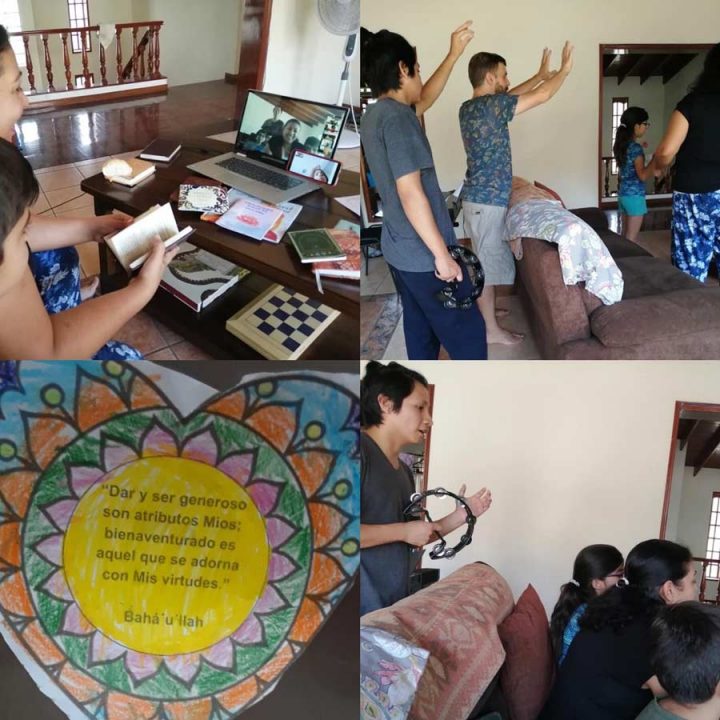
Aida has been teaching classes for children in her local community of Lima, Peru, for some time. In these classes, she helps the children explore spiritual concepts like honesty, responsibility, kindness and truthfulness, through art, songs, stories and games. Since the city went on lockdown, they haven’t been able to meet as usual, but she’s created an excellent strategy to carry out classes over video conference:
“For our children’s class each Sunday I make a lesson plan. I shared that lesson with the mothers in our WhatsApp group so they could read it and print the coloring page or the revision page for the older kids. Before we started the class every kid was ready and the mothers knew what was going to happen, so if it was needed they were there to help their kids. Next class, we’ll include my two nephews from Spain and two other children who live in the United States.” (Aida C., 42, Lima, Peru)
4. Helping others from a distance
For the Baha’is living in Savannah, social distancing was a significant obstacle to all the activities they had going on in their community – such as prayer gatherings, study groups for youth and adults to explore spiritual topics, and larger community gatherings. But they rose to the challenge in creative ways — and discovered that the new system has its advantages:
“Since we’re not meeting in each other’s homes or the Baha’i center anymore due to COVID-19, we have moved all of our community activities online. Through Whatsapp, email, and Zoom, we have scheduled and held online meetings for community gatherings, prayers and study. There has been a great deal of support and patience during this time, and we are finding that these online avenues are actually quite convenient. Some community members that previously had difficulty meeting in person are now able to meet virtually.
“We also had a small food drive and delivered packages of food with a note to our neighbors to let them know we’re thinking about them and keeping them in our prayers.” (Neha Z., 26, Savannah, GA)
5. Online is for everyone
Many have wondered if the online shift may prove challenging to the older members of the community, but one group is proving that that’s just a stereotype. Liz, who lives in Hawaii, found that her community adjusted just fine, and that with some simple adjustments to daily life, people of all ages can still participate:
“The Baha’is of Waimea began utilizing Jitsi and Zoom to hold meetings, study gatherings and prayer gatherings. We are sharing these on social media and planning to create firesides and online study gatherings to offer widely.
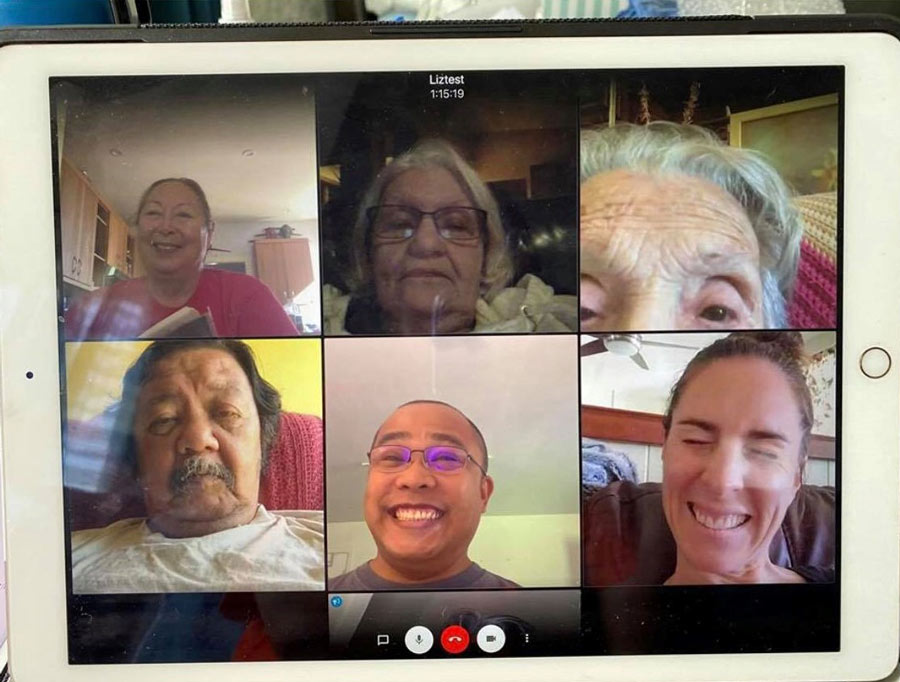
“Our small Baha’i community is nine adults at this time and the majority are senior citizens. We are blessed that most of us are technology savvy. The person who was shy about it was encouraged and became courageous and embraced it. One member is nearly blind and needs assistance, so the caregiver arranges access. Another member lives in a vehicle and has sporadic phone service. That person goes to a location with access also.” (Liz H., 70, Waimea, HI)
6. Neighbors come together more than ever
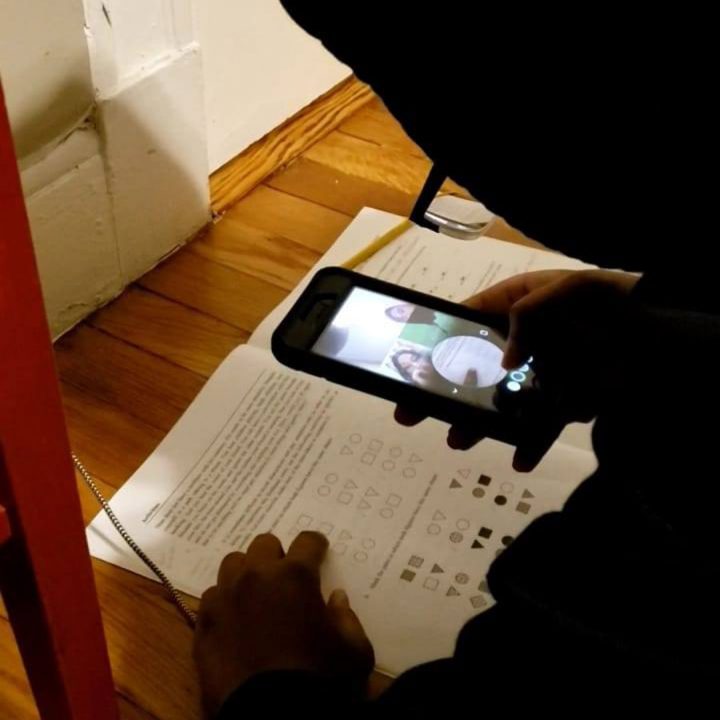
The Chelsea neighborhood in Boston famously has a large number of activities for children, youth and adults taking place in the space of a few blocks. It may have seemed easy for social distancing to kill the neighborhood spirit, but Riwaj found that exactly the opposite happened. The crisis brought people together even more than before:
“In Chelsea, right before the crisis, we were counting more than 20 activities with the majority being around the educational imperative: five children’s classes, four junior youth groups, five study gatherings, and six to seven prayer gatherings. Since the start of the crisis we completely stopped the children’s classes, and instead started to study with all the teachers. Two out of four junior youth groups haven’t met since but the other two are learning about having online spaces. They are continuing to study unhindered. They realize that this may be the reality of how things are for a while, so they are determined to make virtual junior youth groups work. Additionally, animators are finding creative solutions in online games as a way to engage the group in recreational activities.
“I would say this crisis has really helped the Chelsea youth engage more than before. There are more spaces for study and more opportunities for collective prayer. With having to stay at home indefinitely, these youth are eager to join prayer gatherings and study together. This way we have increased the number of study groups from five to nine, and have also created many informal opportunities for prayer gatherings.” (Riwaj T., 27, Boston)
7. Uniting across borders
One group of youth saw social distancing as an opportunity to reach further than ever before: to friends currently in the same situation in other countries. Jimena shared:
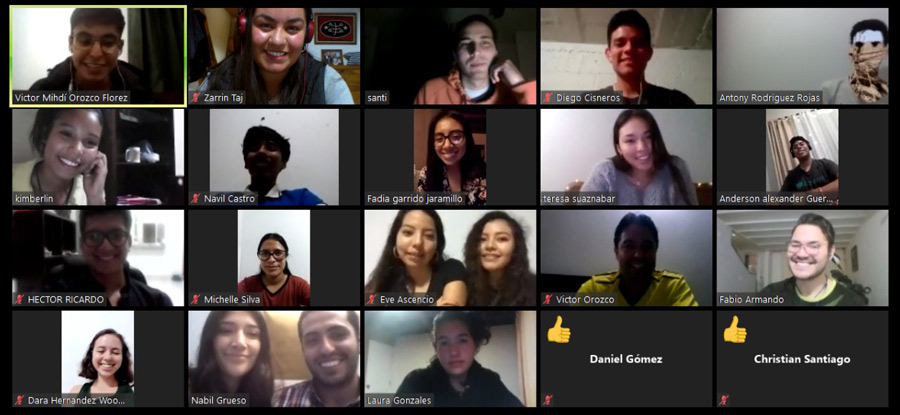
“Virtual firesides are virtual gatherings organized by a group of peruvian Baha’i youth. The idea came to us when social distancing began in many different countries as a result of COVID-19. The objective of these daily gatherings is to create a space for conversation about spiritual topics, to which we can invite new friends to participate. In this creative way, the youth stay united and continue to invite others to join in the building of a new civilization based on Baha’u’llah’s vision.
“So far, we’ve held ten sessions, and we’ll continue to hold them until this challenging period for humanity ends. The participants have expressed that they feel very happy learning and exchanging experiences with their friends in different parts of the world, and they also perceive a greater unity between the Baha’i friends of Latin America. We have participants from Peru, Colombia, Ecuador, Argentina, Panama, Costa Rica, El Salvador, Dominican Republic, Argentina and Spain.” (Jimena A., 28, Lima, Peru)


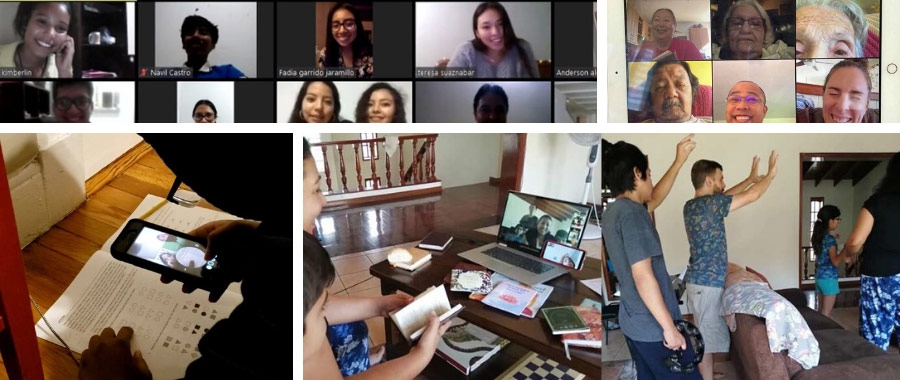

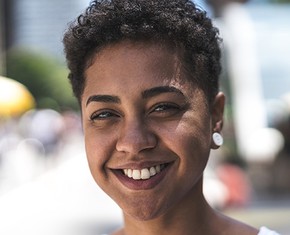











Comments
Sign in or create an account
Continue with Googleor